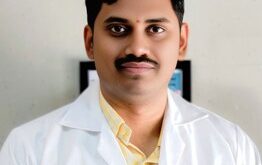In the realm of medical education, the debate between practical knowledge and theoretical knowledge has persisted for decades. Medical Education requires high competency levels in various clinical skills such as examination of patients and execution of clinical techniques on patients by integrating skill and simulation-based teaching and learning as supplementary to traditional methods of bedside clinical teaching. However, in recent years, we have come to a realization that theoretical knowledge is a sound base in medical education on which you top up your education with practical knowledge.
Why Practical Knowledge and Theoretical Knowledge are equally important in Medical Education?
Medical education is a multifaceted journey that combines theoretical knowledge with practical application. While theoretical knowledge lays the foundation for understanding medical concepts, practical knowledge is equally indispensable in shaping competent and proficient healthcare professionals.
- Clinical Competence: Theoretical knowledge provides the necessary framework, but practical knowledge is essential for translating theories into real-world applications. Clinical competence, involving skills such as patient examination, diagnosis, and treatment, cannot be fully acquired without hands-on experience.
- Skill Development: Theoretical knowledge provides the necessary framework, and practical knowledge is essential for translating theories into real-world applications. For example: Simulation labs offer a hands-on approach to skill development, enabling learners to practice and perfect clinical procedures repeatedly. Whether it’s suturing a wound, administering anesthesia, or conducting a surgical operation, practical knowledge obtained through simulations can be the difference between success and failure in the operating room.
- Decision-Making Abilities: In a clinical setting, healthcare professionals often face unexpected challenges and emergencies. Theoretical knowledge provides a framework for understanding the context in which decisions are made. In medicine, understanding the theoretical underpinnings of diseases, patient history, and symptoms enables healthcare professionals to recognize patterns and make informed decisions based on those patterns. Practical knowledge on the other hand gained in simulation labs allows individuals to develop problem-solving and decision-making skills in a risk-free environment. This experience is invaluable in preparing students to handle real-life medical crises.
- Teamwork and Communication: Medicine is not just about individual knowledge but also about effective teamwork and communication. Theoretical knowledge provides team members with a common understanding of foundational concepts, terminology, and principles within their field. This shared knowledge creates a common language that facilitates clear and effective communication among team members. Practical knowledge foster collaboration among healthcare professionals by simulating real clinical scenarios, encouraging participants to work together, delegate tasks, and communicate efficiently.
- Mistake Learning: Making mistakes is a natural part of learning. Theoretical knowledge enables medical professionals to conduct thorough root cause analyses when mistakes occur. Understanding the theoretical foundations of medical procedures, protocols, and principles helps identify the underlying factors contributing to errors, allowing for targeted improvements. Practical Knowledge, students can make errors without causing harm to patients. This allows them to learn from their mistakes, refine their skills, and become more confident in their abilities, which is challenging to achieve through theoretical knowledge alone.
- Bridging the Gap: Theoretical knowledge provides students with conceptual frameworks that serve as a foundation for understanding the fundamental principles of medicine. This foundation is essential for bridging the gap between basic science concepts and their practical applications in clinical settings. Practical knowledge bridges the gap between theory and real-world practice. It helps students and medical professionals apply their theoretical knowledge to practical situations, ensuring they can deliver effective patient care.
Conclusion
While theoretical knowledge is a sound base in medical education on which you top up your education with practical knowledge. The combination of theoretical and practical knowledge is the key to producing well-rounded, competent medical professionals. Through the integration of these two pillars, we can ensure that future generations of healthcare professionals are not only well-informed but also well-prepared to meet the challenges of modern medicine, delivering the best possible care to their patients.
By: Dr. Naresh Alreja, MBBS, D.O.M.S, FCPS (Ophthalmology), Consulting Ophthalmologist, Deputy Registrar – CPS (College of Physicians & Surgeons of Mumbai)
 Newspatrolling.com News cum Content Syndication Portal Online
Newspatrolling.com News cum Content Syndication Portal Online







